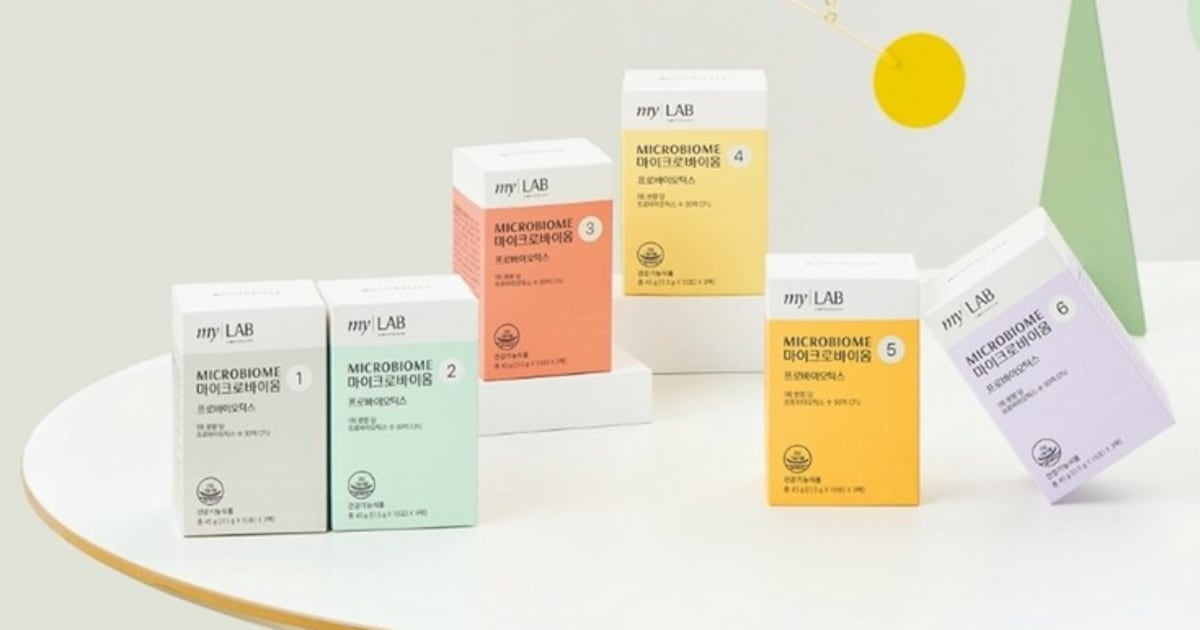The two companies’ partnership started about a decade ago. In 2022, they launched a gut microbiome testing and personalised nutrition products branded “My Lab by Nutrilite” in South Korea.
So far, the companies have collected about 95,000 samples from the South Korean consumers who had subscribed to the gut microbiome testing and personalised nutrition service.
The samples come from different individuals, as well as multiple samples collected from an individual overtime to assess changes in their gut microbiome.
With the samples collected from gut microbiome testing, the two companies have been able to identify bacteria strains that could support certain physiological functions, and subsequently formulate products based on these analyses.
Using these data, works are underway in formulating new probiotic products for supporting kids nutrition and cognitive function for the Korean population, Dr. Yosep Ji, CEO of HEM Pharma, told NutraIngredients.
An example of a product that was launched based on microbiome profiling and analysis was Nutrilite Enzyme Biome – a product that supports the digestion of plant protein.
Launched in South Korea last year, the product is formulated with probiotic strains profiled from the local Korean population.
This was based on the observation that individuals who were able to digest plant protein better had certain types of bacteria in their gut.
“Some people would experience increased flatulence after consuming plant proteins like soy protein, because their microbiome produce huge amount of gas from plant proteins.
“However, some people do not have this problem because their microbiome is able to convert these plant proteins into short-chain fatty acids that would be beneficially utilized in the body.
“We’ve then identified a few specific bacteria within the responders – meaning individuals who have certain unique bacteria that can convert plant protein into short-chain fatty acids,” he explained.
Having identified these bacteria strains, HEM Pharma then validated its properties in in vitro testing.
“We tested it and found that the bacteria has the ability to convert protein digestion to three times higher than before in in-vitro testing.
“We patented the strain with Amway and made the product Enzyme Biome.”
The strain, known as Lactobacillus plantarum HEM 20701 derived from adult fecal samples, has filed for a patent in South Korea.
Candidate identification
While there are many “responders” bacteria observed, there are four factors determining which bacteria would be the ideal candidate for commercialization, said Dr. Ji.
They are efficacy of the bacteria, the ability to produce the bacteria at industrial level, potential of obtaining intellectual property for the bacteria, and meeting regulatory requirements.
The company has also submitted clinical evidence of the strain Lactobacillus plantarum HEM 20701 for publication in a scientific journal.
The above is just an example of a new probiotic product that the could be developed based on local microbiome profiling and testing.
“Both companies have learned and grown together in the area of microbiome research and the potential of microbiome science to help people live healthier,” said Dr. G Paul Seehra, VP of global nutrition, discovery, science, and AG/plant innovation, research and development at Amway.
“Amway, with HEM, has collected 90,000 to 100,000 samples. Based on my understanding, that may be the world’s largest database of gut microbiome assessment in the world.
“The unique insights gained include understanding the range of the gut microbiome diversity, what the gaps may be, and how that may be associated with how individuals experience health and wellbeing.
“This helps us conceive what lifestyle or product solutions may exist to contribute to their health in a way that’s personalized for populations of people,” he added.
Plant nutrition, the microbiome, and human health
Plant nutrition is a big part of Amway, having launched various products under its flagship brand Nutrilite.
As microbiome research deepens, Dr. Seehra pointed out that microbiome science has played a crucial role in demonstrating the benefits of plant nutrients on human health.
“Amway and Nutrilite have a very long legacy and history in understanding how plants and whole foods can contribute to human health.
“The science uncovered over the last many decades have established and proven that a wide range of plants can contribute to human health and microbiome science further intensifies that point of view,“ he said.
Amway has been investing more in microbiome science in recent years.
For example, through its Singapore Business Innovation Hub, it is working with regional firms such as Singapore’s AMiLi on microbiome projects.
Japan next…And many more
The two companies are planning to emulate the success seen in South Korea in other markets, including Japan where research work has already begun.
As with South Korea, the first step is to introduce its gut microbiome testing so as to collect and accumulate a microbiome database.
With this, the companies would then be able to understand gut microbiome diversity, the commonalities and differences within specific populations.
This would then serve as a potential blueprint for new probiotic product development.
”There are two angles to this. First, novel solutions require a deep understanding of a gut health in different countries and cultures.
“Second, our goal is to apply that deep understanding to develop the next generation of highly efficacious probiotic technology and products that don’t require a microbiome test and are more accessible to people,” said Dr. Seehra.
Other markets earmarked for gut microbiome research and personalized nutrition expansion include Taiwan, Thailand, Malaysia, and the US further down the road. The plan is also to involve local collaborators to be part of the expansion.
“As a collaborator, I see the power of the Amway network, the potency that they have in terms of data accumulation, and I think in the coming 10 to 20 years, Amway would become a strong player in healthcare,” said Dr. Ji.
In South Korea, user participation in gut microbiome testing had exceeded expectations by two to three-fold, which attested to the effectiveness of the program and solutions offered, said Dr. Seehra.

